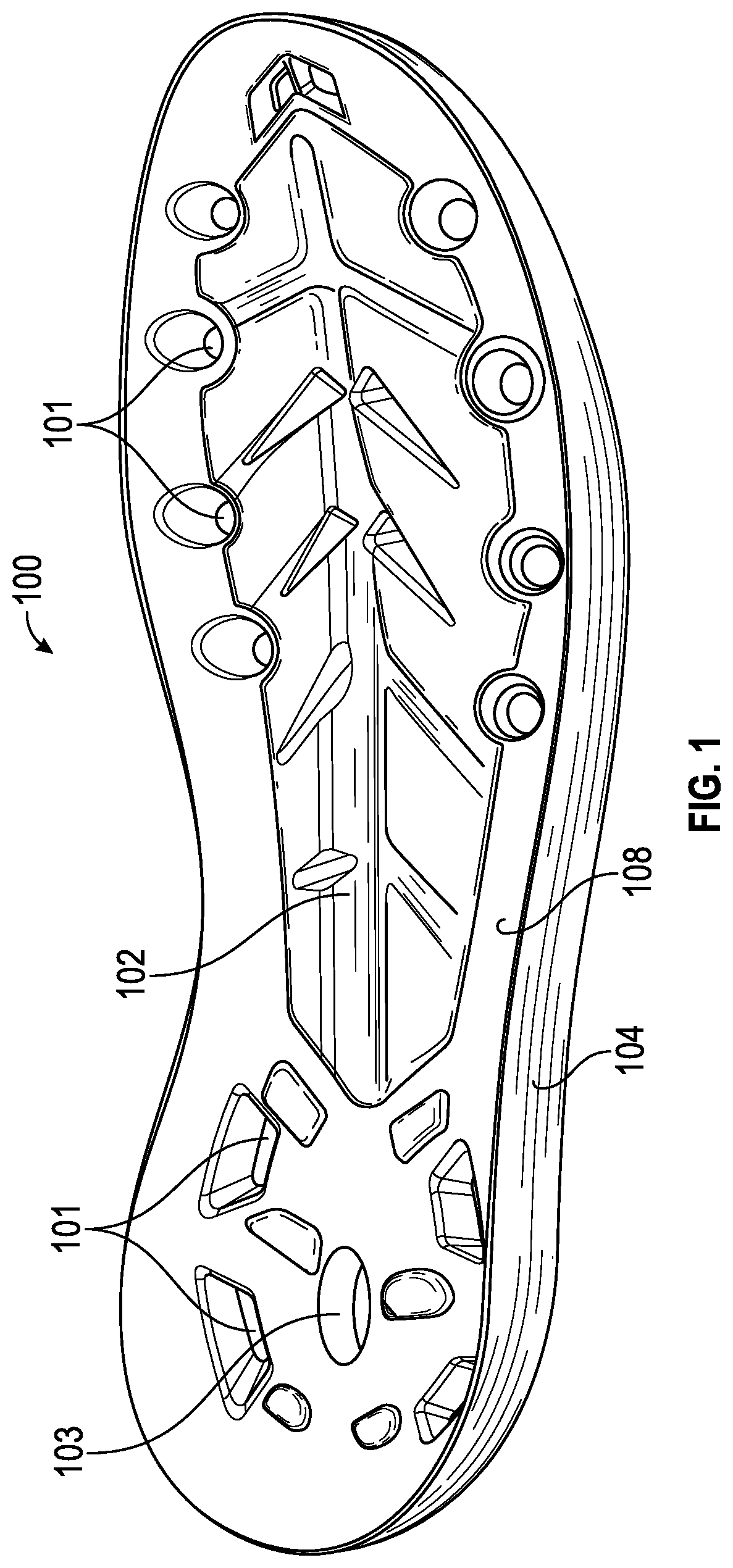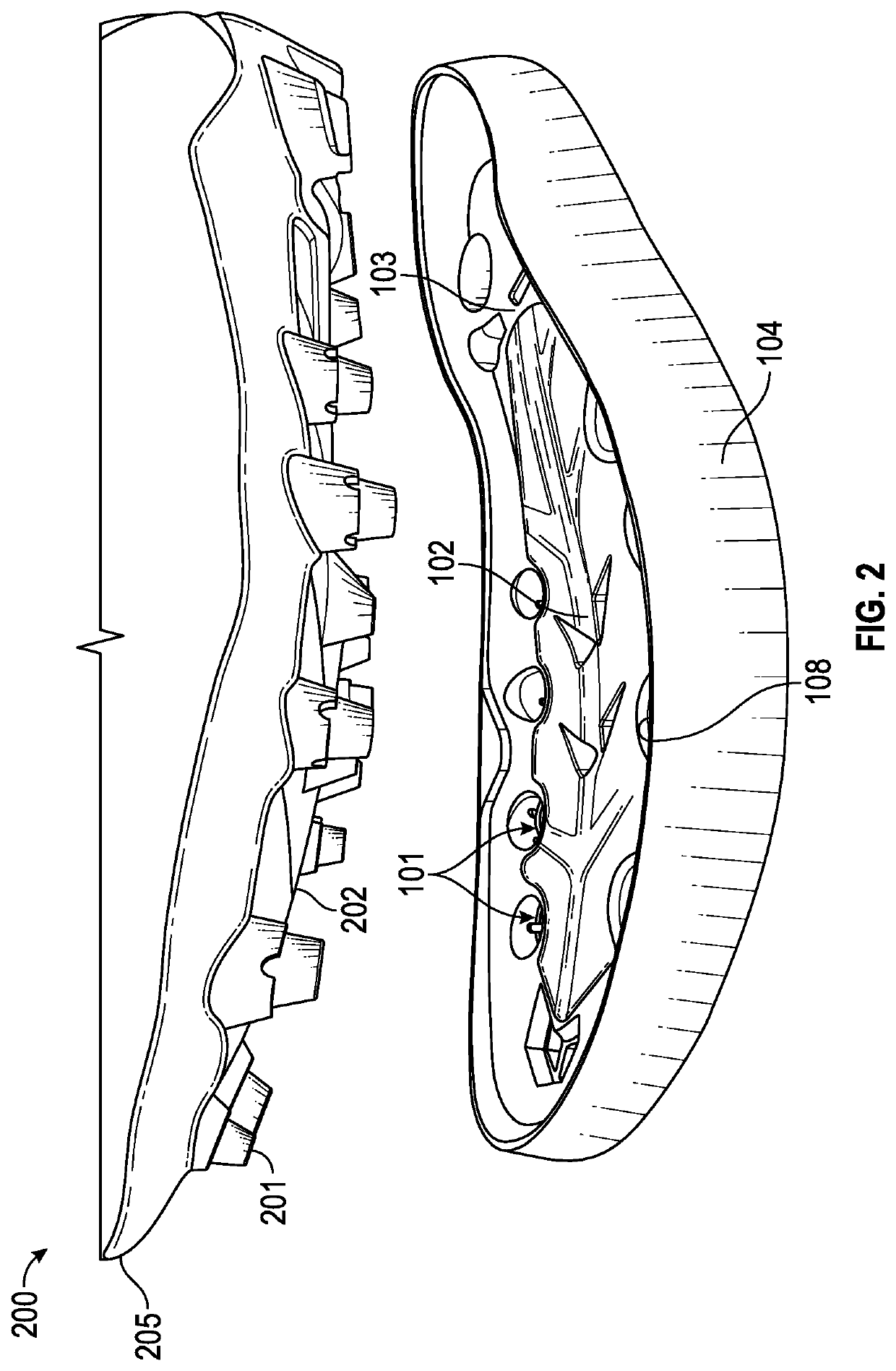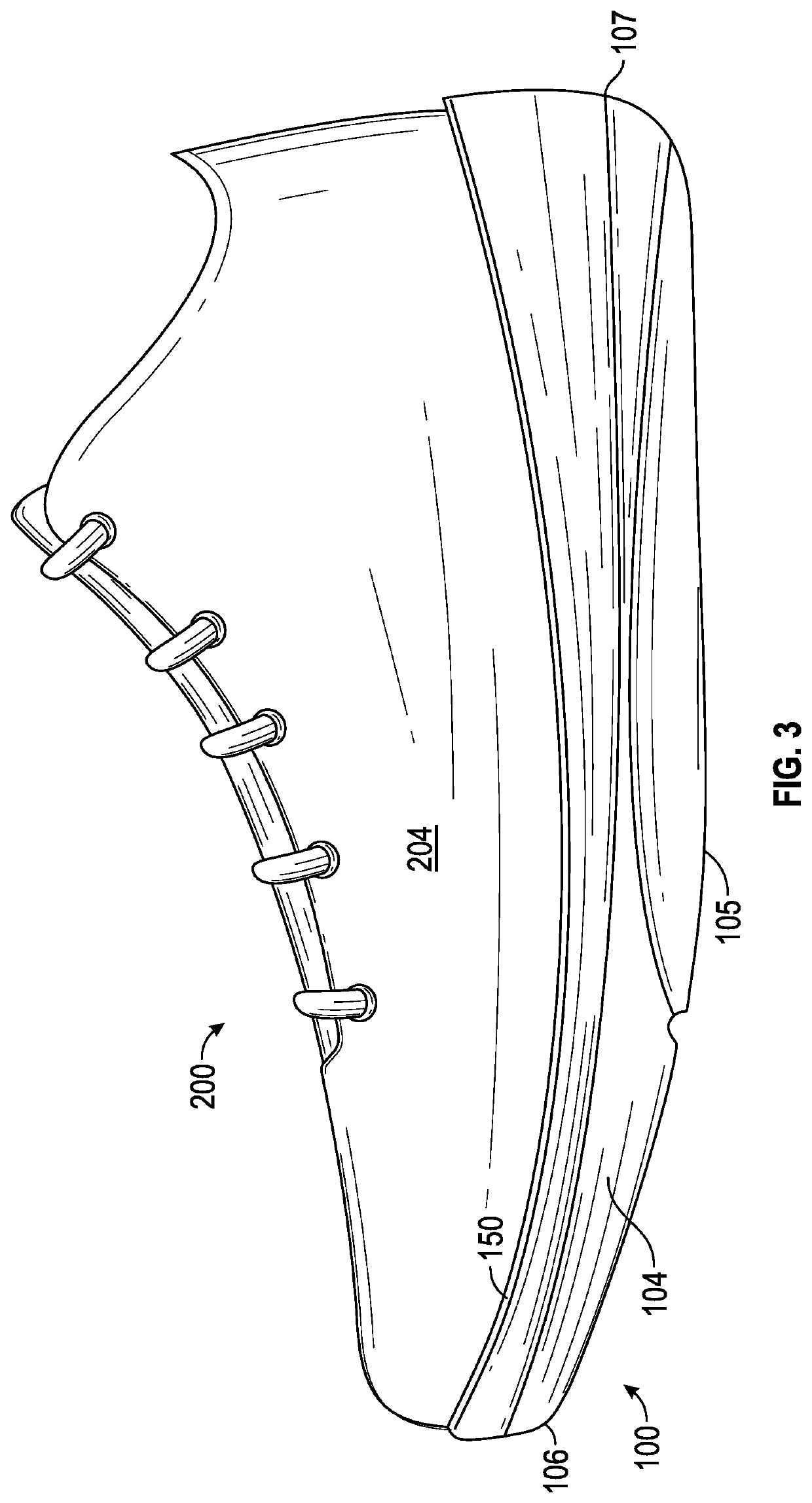Protective cover for cleated athletic shoes
a protective cover and athletic shoe technology, applied in the field of protective covers for athletic shoes, can solve the problems of shortening the lifespan of shoes, dents or scratches on the floor, worn out shoes, etc., and achieve the effect of quick and simple application and convenient us
- Summary
- Abstract
- Description
- Claims
- Application Information
AI Technical Summary
Benefits of technology
Problems solved by technology
Method used
Image
Examples
Embodiment Construction
[0031]FIG. 1 is a three dimensional top view of a protective covering 100, which may be formed out of a variety of flexible materials including but not limited to rubber, plastic foam, or high density stretch fabric. The protective covering 100 contains holes or recesses 101 to receive the metal or plastic cleats, studs, spikes, or other protrusions (collectively “cleats”) from a shoe having such protrusions (a “cleated shoe”). The top portion of the protective covering 100 may also be formed to receive any non-cleat protrusions on the bottom of the shoe, such as formations to receive logos 103 and formations to receive other design features 102. These formations may be holes, recesses, or materials that flex to accept the logo or design formations of the shoe. By forming the protecting covering to match both the cleats and non-cleat protrusions, the protective covering adheres tightly to a cleated shoe while maintaining the distinctive design of the shoe itself. The outer side 104 ...
PUM
| Property | Measurement | Unit |
|---|---|---|
| temperatures | aaaaa | aaaaa |
| flexible | aaaaa | aaaaa |
| friction | aaaaa | aaaaa |
Abstract
Description
Claims
Application Information
 Login to View More
Login to View More - R&D
- Intellectual Property
- Life Sciences
- Materials
- Tech Scout
- Unparalleled Data Quality
- Higher Quality Content
- 60% Fewer Hallucinations
Browse by: Latest US Patents, China's latest patents, Technical Efficacy Thesaurus, Application Domain, Technology Topic, Popular Technical Reports.
© 2025 PatSnap. All rights reserved.Legal|Privacy policy|Modern Slavery Act Transparency Statement|Sitemap|About US| Contact US: help@patsnap.com



